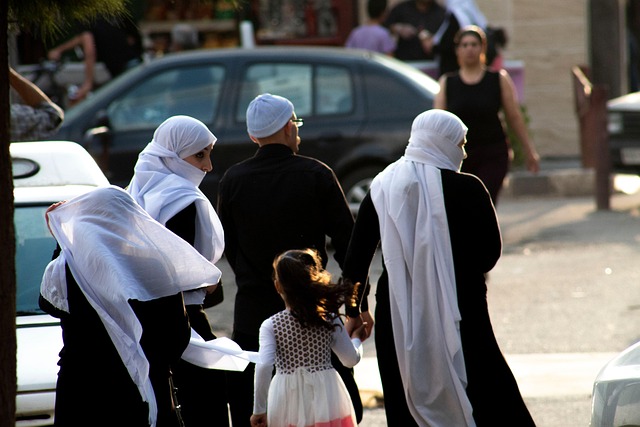By Weliam Sejari
( Global Voices ) – The fall of President Bashar al-Assad’s regime on December 8, 2024, marked a pivotal moment in Syria’s history, ending over five decades of Assad family rule. This transition, however, has been marred by escalating violence, particularly against the Alawite community in Syria’s coastal regions.
Beginning on March 6, 2025, reports emerged of massacres perpetrated by militias aligned with the new government and foreign armed groups, some backed by Turkey and Qatar. These groups engaged in systematic killings, degradation, field executions, and widespread intimidation against Alawite civilians.
The Syrian Observatory for Human Rights (SOHR) reported that over 1470 individuals have been extrajudicially killed since March 6, and the numbers are increasing. Rami Adbel Rahman, SOHR Director, told France 24 that “Every hour we discover a new massacre on the Syrian coast.”
The violence lead to mass displacement as thousands of Alawites fled their homes, seeking refuge in nature and some reaching neighboring Lebanon.
Hundreds of videos and photographs recording the atrocities spread on platforms like Telegram, Instagram, and Facebook exposing evidence of ethnic cleansing.
Understanding the current situation requires a comprehensive examination of the historical context, recent developments, and the challenges facing the new transitional government.
Sectarian dynamics
The Assad family’s rule began in 1971 with Hafez al-Assad and continued with his son, Bashar al-Assad, from 2000. Throughout their tenure, the family maintained power through a combination of political repression and strategic alliances, often manipulating sectarian divisions to consolidate control.
The Alawite minority, to which the Assad family belongs, was positioned as a bulwark against Sunni-majority opposition, fostering a narrative of protecting minorities against extremist threats. This approach deepened sectarian divides, thereby marginalizing genuine calls for reform and revolution.
The 2011 Arab Spring saw widespread protests in Syria, met with brutal repression by the Assad regime. The government’s response included indiscriminate violence against protesters, leading to a full-scale civil war.
Throughout the conflict, the regime employed tactics such as forced displacements and demographic engineering to maintain its grip on power. One notable example was the “Green Buses” campaign in 2016, where opposition fighters and their families were forcibly relocated to northern Syria under dire conditions, effectively altering the demographic landscape of key regions.

File. Image of Druze family in Suwaida by fahed kiwan from Pixabay
The fall of the Assad regime
In late November 2024, a coalition of opposition forces, led by Hay’at Tahrir al-Sham (HTS) and supported by the Turkish-backed Syrian National Army (SNA), launched a rapid offensive against government-held territories. This offensive resulted in the swift capture of major cities, including Aleppo, Hama, and Homs, culminating in the fall of Damascus on December 8, 2024. Bashar al-Assad fled to Russia, effectively ending the Ba’athist rule in Syria.
The sudden collapse of the Assad regime created a power vacuum and set the stage for a transitional government. Ahmed al-Sharaa, also known as Abu Muhammad al-Jolani, emerged as the de facto leader, with Mohammed al-Bashir appointed as the caretaker prime minister. The new administration faced the monumental task of rebuilding a nation devastated by years of conflict, with the added challenge of addressing deep-seated sectarian tensions.
Government response and international reactions
The transitional government, led by al-Sharaa, faced significant criticism for its handling of the escalating violence. While the administration condemned the attacks and vowed to hold perpetrators accountable, reports indicated that some militias involved in the atrocities operated under the umbrella of the Ministry of Defense, raising concerns about the government’s complicity or inability to control allied forces.
Media supporting Ahmad al-Shara’s government were accused of staging scenes of security and stability, bringing cameras into villages — some for the first time — to craft a controlled narrative, selectively featuring residents who reinforce their version of events, portraying remnants of the Assad regime as the primary perpetrators of attacks on Alawite villages.
Local residents we interviewed spoke about being coerced into publicly endorsing the government’s narrative. They described how community leaders, including village sheikhs (community representatives) faced threats, with warnings that refusal would result in even greater violence and reprisals.
One villager who chose to remain anonymous for fear from such reprisals, recalled: “The authorities made veiled threats towards the Sheikh of the village, that if he speaks against their official narrative, the village would face serious consequences.”
In one widely circulated video, another villager angrily refused aid from the Syrian Red Crescent while declaring: “It is hypocritical to assist us in the morning in front of your cameras and then kill us at night with your weapons. Go away!”
The international community reacted with alarm to the sectarian violence. The United Nations Security Council issued a statement condemning the massacres and urging the Syrian interim authorities to uphold the principles of transitional justice — ensuring accountability for both past and present crimes — restore the violated rights of the people, to protect all citizens, irrespective of their religious or ethnic affiliations. True progress can only come from learning from these mistakes and striving for a just, prosperous, and participatory future.
Via Global Voices .


 © 2026 All Rights Reserved
© 2026 All Rights Reserved